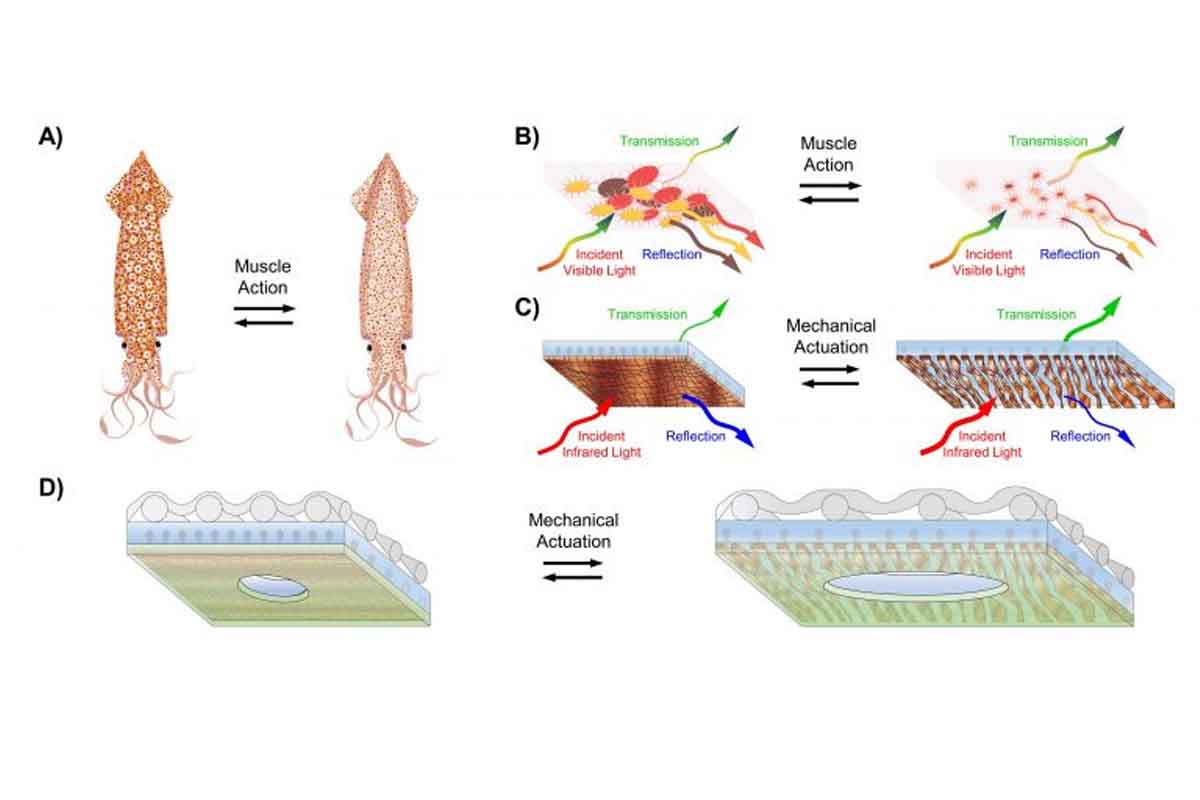Researchers at the University of California, Irvine, have created a fabric inspired by squid skin, capable of regulating body temperature, ensuring breathability and being washable

©APL Bioengineering
From sportswear companies, many fabrics are touted for working well in any weather condition. But what if your clothing could literally adjust to the specific heat needs of your body?
Researchers at the University of California, Irvine, have developed an engineered material that borrows from the camouflage capabilities of squid skin-an ability to change color and texture in response to temperature fluctuations. That can be easily donned as “second skin” into which human temperature fluctuations are translated, is both breathable and washable, and was easily integrated into standard meshes. The research team published their findings in APL Bioengineering from AIP Publishing.
The secret to controlling temperature lies in complex layers within squid skin.
Squid skin is a multilayered marvel that works in harmony to manipulate light, enabling the squid to change color and pattern. This is effected with tiny chromatophores, which expand and contract under muscular control to modulate the passage and reflection of light. Scientists inspired by this developed instead a material interacting with infrared radiation. The human body dissipates heat when it warms up by emitting invisible infrared radiation. This infrared radiation can be detected by the intelligent fabric and induce a reaction so the temperature of the garment can be controlled with precision.
A washable breathable material ready for everyday use
The researchers applied a thin protective layer to the fabric, which made it appropriate for everyday use and washable without degradation of its properties. They perforated the material to make it very breathable and permeable in terms of air and water vapor, similar to cotton fabrics. Tests using infrared spectroscopy and a heated plate showed that it still thermoregulates when modified.
This new material is sure to find great applications in cold-weather wear-from ski jackets to socks and gloves, even hats. The associated production techniques could also be transferred to other areas of interest, such as washable wearable electronics and energy-storing stretchable fabrics.
Source: APL Bioengineering
